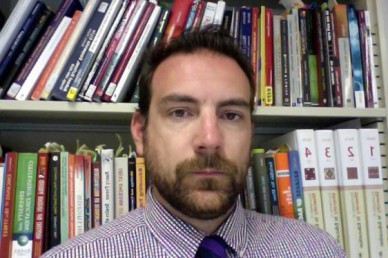UIC experts publish papers on Chicago Public Schools
Several University of Illinois at Chicago education experts have published papers in a special issue of “Education and Policy Analysis Archives,” a peer-reviewed and open access scholarly publication. Published this month and titled “Restructuring and Resisting Education Reforms in Chicago’s Public Schools,” the special issue’s entire focus is dedicated to Chicago’s public schools.
Federico Waitoller, UIC assistant professor of special education and UIC doctoral candidate Rhoda Rae Gutierrez in the College of Education served as guest editors of the special issue.
The issue also features work from Pauline Lipman, a UIC professor of education in the education policy studies department; and Gia Super, a UIC graduate student of education. Other authors include two members of the Chicago Teachers Union.
Among the work by UIC experts, Lipman’s piece discusses the historical, political, economic and educational context of Chicago. Her paper examines the relationship between neoliberalism, racism and educational policy in Chicago and the connection between neoliberal restructuring of urban education and the resistance of grass roots organizations.
Waitoller’s and Super’s paper analyzes how black and Latino parents of students with disabilities engage with school choice.
They argue that rather than engaging with school choice, parents engage with the “politics of desperation.” The paper also links parents’ school decisions with larger economic and neighborhood changes occurring in the city of Chicago in the last several decades.
Gutierrez and her co-author examine the impact of the historic 2013 Chicago Public Schools closings on families. They found that parents affected by school closings see neighborhood schools as community anchors and had a “more democratic vision” of public schools than CPS administrators. They write that at the root of the school closings there is a battle to frame and define the purpose of public education.
According to the editors, the papers do not serve as a conclusive set of findings but rather a call to researchers to continue to analyze neoliberal policies and their interconnections with race, class and disability.

